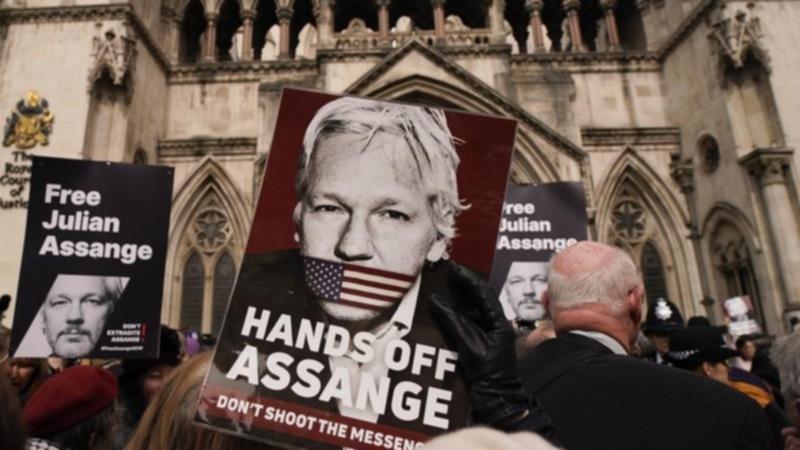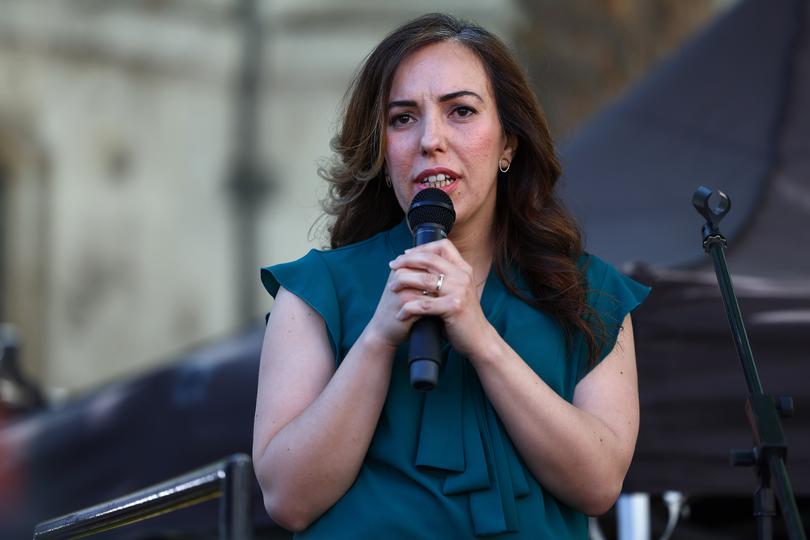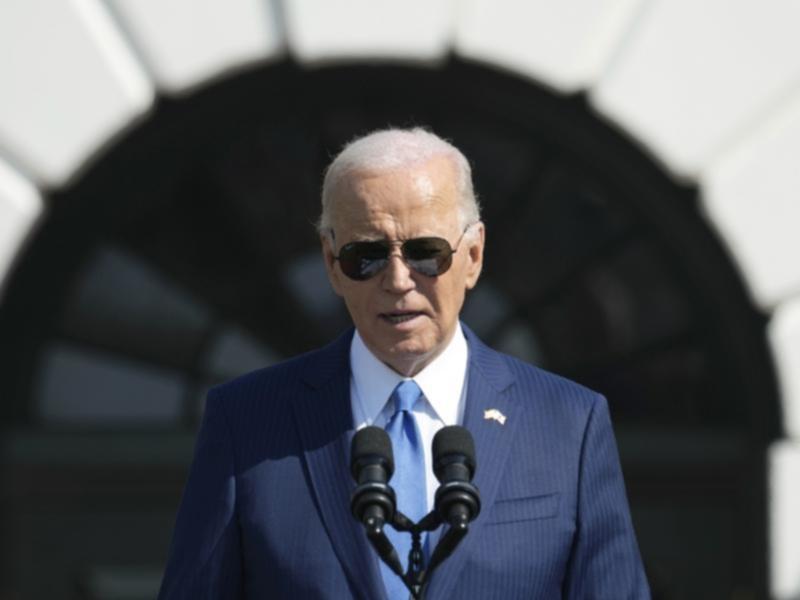London court’s Julian Assange ruling ‘a turning point’ in extradition fight to avoid US justice
Julian Assange has secured one of the biggest legal victories in his 15-year fight to avoid US justice.

Australian whistleblower Julian Assange has secured one of the biggest legal victories in his 15-year fight to avoid US justice, with a London court granting him leave to appeal his extradition.
The High Court ruling handed down on Monday night, Australian time, also removed the threat of a US death sentence that has stalked Assange for five years over the publication of classified materials on his WikiLeaks website.
“Today marks a turning point,” his wife Stella said outside court.
Sign up to The Nightly's newsletters.
Get the first look at the digital newspaper, curated daily stories and breaking headlines delivered to your inbox.
By continuing you agree to our Terms and Privacy Policy.Two London High Court judges granted two of the three avenues of appeal sought by Assange’s legal team, including finding that he would potentially be unable to exercise a first amendment right to free speech under the US Constitution because he was not a citizen.
The judges accepted undertakings from lawyers acting for the US that the death sentence would not be pursued, however, if Assange is eventually extradited for trial over the national security charges he faces life in prison if found guilty.

“We went into court and we sat and heard the United States fumbling through their arguments, trying to paint lipstick on a pig. Well, the judges were not convinced,” Mrs Assange said.
Assange, 52, was not in court for the hearing, but his wife said he was relieved. A date has not been set for the appeal, but UK reports suggest it would be at the end of the year.
A furious diplomatic effort is playing out at the same time as his lawyers appeal the 2022 decision by the UK Government to extradite him to the US.
He was charged in the US in 2019 with 18 counts of publishing classified documents and conspiring with US intelligence analyst Chelsea Manning to unveil material relating to the Afghanistan and Iraq conflicts that was hacked from the Pentagon.
President Joe Biden recently indicated he would consider dropping the charges at the request of the Australian Government.

Assange has been in the UK since 2010 when he was first charged by Swedish authorities over an alleged rape. He denied that charge and the case was not pursued, but the international arrest warrant issued by Sweden precipitated a meandering legal journey that saw him hide in Ecuador’s London embassy from June 2012 to April 2019.
With failing health, Assange has spent years jailed in a UK prison since he was ejected from the embassy, and Mrs Assange said he was “suffering”.
“He’s under enormous, enormous pressure. It’s hard for all of us. But just imagine what it’s like for Julian, who has been in Belmarsh (prison) for over five years,” she said.
“And who has had to endure this gruelling process from inside his cell and isolated from everyone and from a distance.
“It’s a very good sign today. I think the US administration should take this as a moment to drop the case, and to .... distance itself from this terrible prosecution, which this administration did not initiate and should have put an end to already.”
Monday’s ruling was hugely significant, said Holly Cullen, an adjunct professor of law at University of Western Australia Law School who has been studying Assange’s case for the past decade.
“If the appeal succeeds, I think that’s probably the end of it,” she told The Nightly.
“It’s possible that the US Government might seek to appeal to the UK Supreme Court, but like the High Court of Australia, they would need leave to appeal.
“But there are a lot of moving parts on this. And what I always say is that it’s been very difficult to predict how this case will evolve.
“Because while we know what happens next with the legal process, we don’t know what might happen with the diplomatic process that’s running alongside it.”

